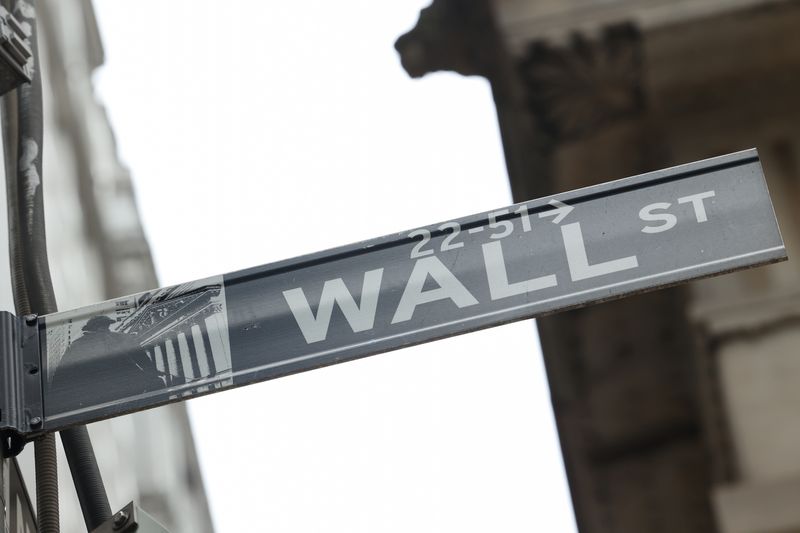
© Reuters. A street sign marks Wall Street outside the New York Stock Exchange (NYSE) in New York City, where markets roiled after Russia continues to attack Ukraine, in New York, U.S., February 24, 2022. REUTERS/Caitlin Ochs
By Saeed Azhar and Davide Barbuscia
NEW YORK (Reuters) – After the collapse of two U.S. banks and record outflows from smaller lenders, the banking industry is shifting its concern from an immediate crisis to a medium-term worry: economic growth.
Deposits held by small U.S. banks dropped by a record $119 billion to $5.46 trillion after the collapse of Silicon Valley Bank on March 10, according to data released Friday by the Federal Reserve.
“We expect stress in the banking system to weigh on credit growth, which will in turn reduce real GDP growth,” Goldman Sachs (NYSE:) analysts led by chief economist Jan Hatzius wrote in a note, referring to gross domestic product.
Financial markets remain unsettled by the lack of clarity on the government willingness to guarantee customer deposits, Hatzius wrote. Investors are also concerned about the shaken confidence of depositors and uncertainty looming over smaller banks, he added.
As customers move money from their checking accounts to park it into money market accounts, consumer spending will probably decrease, Torsten Slok, chief economist at Apollo Global Management (NYSE:), wrote in a note.
Tighter credit conditions will exert meaningful pressure on economic activity, but the effect will not be catastrophic unless the situation escalates into “full-blown crisis of confidence,” Barclays (LON:) analysts wrote in a note last week.
Recent stress in the banking sector and the possibility of a follow-on credit crunch bring the United States closer to recession, Minneapolis Fed President Neel Kashkari told CBS’ “Face the Nation” on Sunday.
Government policies, including insuring deposits for collapsed lenders Silicon Valley Bank and Signature Bank (NASDAQ:), and the provision of more liquidity to banks, have limited stress in the financial system, but not eliminated it, Goldman Sachs analysts wrote in a report.
U.S. regulators announced on Monday they would backstop a deal for regional lender First Citizens BancShares to acquire failed Silicon Valley Bank, triggering an estimated $20 billion hit to a government-run insurance fund.
The deal comes after the Federal Deposit Insurance Corporation (FDIC) took over Silicon Valley Bank on March 10 after depositors rushed to pull out their money in a bank run that also brought down Signature Bank and wiped out more than half the market value of several other U.S. regional lenders.
“Banking system stress remains high, but there are some signs of stabilization,” Bank of America Corp (NYSE:) analysts wrote in a note. “Growth in bank emergency funding appears to be moderating.”
The Fed data should provide some assurance that funding strains will be more short-lived than feared, UBS analysts said in a note.





